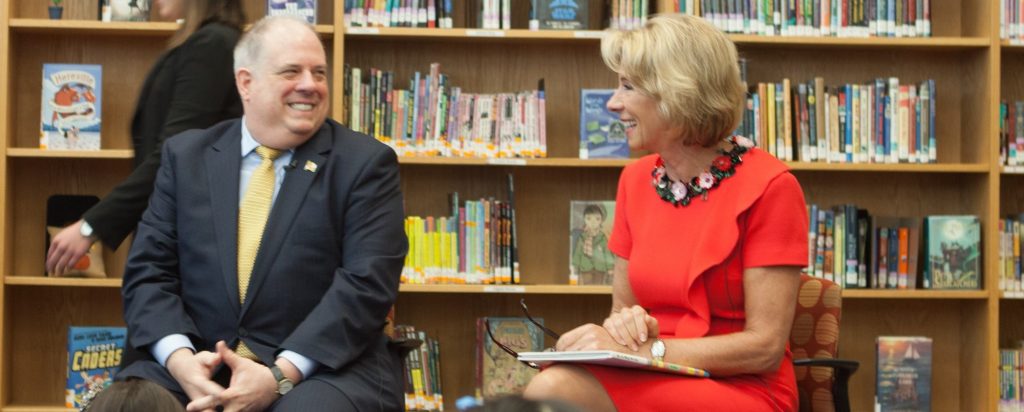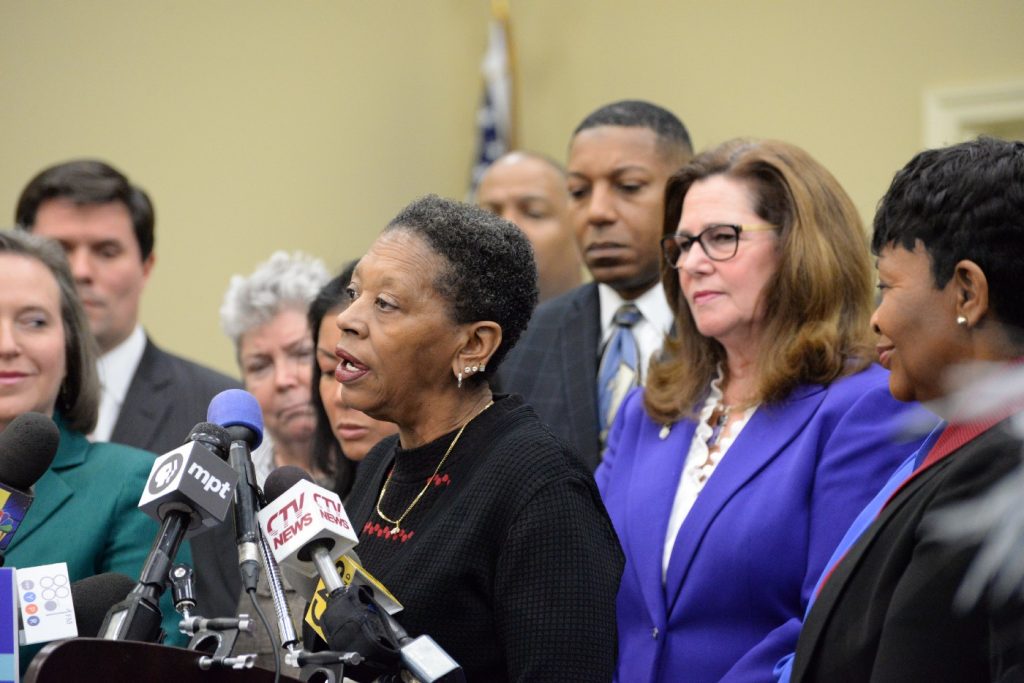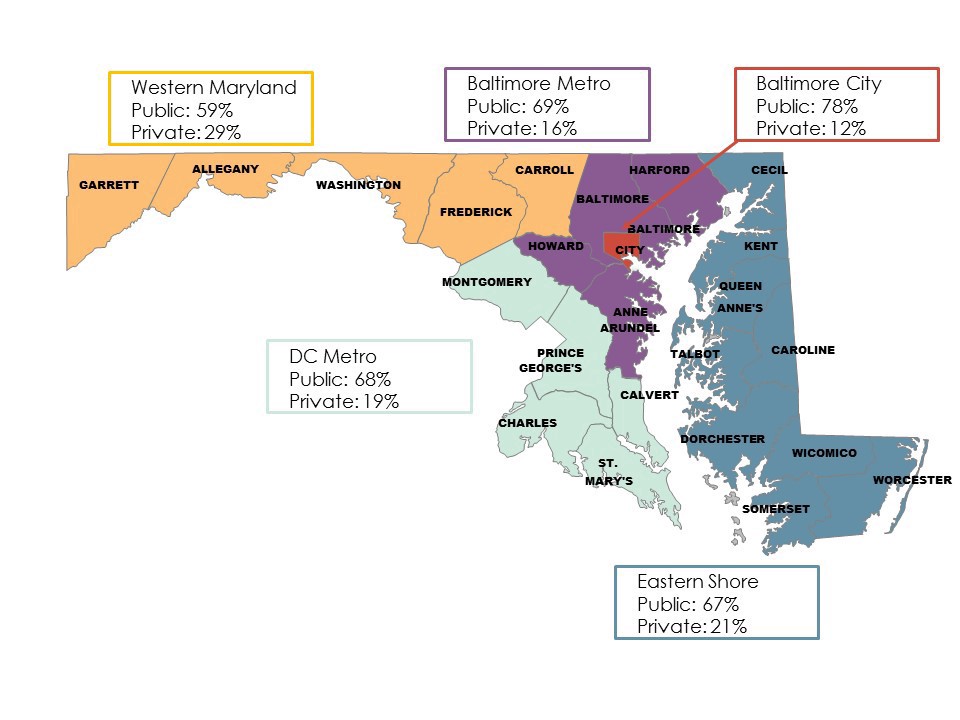Big Win #3: Taking on the Hogan-DeVos Privatization Agenda
Majorities of Marylanders oppose extreme school privatization proposals

Educators, students, and public schools scored several big wins this legislative session. We’ve look at two of the biggest wins and what they mean for Maryland schools: the Protect Our Schools Act and the More Learning, Less Testing Act. Today we’re looking at the defeat of Gov. Hogan’s charter schools bill.
Governor Hogan and U.S. Education Secretary Betsy DeVos share a fixation on promoting charter schools. At every turn, they seem eager to cherry-pick data, loosen accountability standards, and redirect tax dollars from traditional neighborhood public schools to charter schools.
In her home state of Michigan, DeVos spent years — and millions — trying to eliminate even the most basic accountability and transparency standards for charter schools. A Politico analysis described the result:
Despite two decades of charter-school growth, the state’s overall academic progress has failed to keep pace with other states: Michigan ranks near the bottom for fourth- and eighth-grade math and fourth-grade reading on a nationally representative test, nicknamed the “Nation’s Report Card.” Notably, the state’s charter schools scored worse on that test than their traditional public-school counterparts, according to an analysis of federal data.
Critics say Michigan’s laissez-faire attitude about charter-school regulation has led to marginal and, in some cases, terrible schools in the state’s poorest communities as part of a system dominated by for-profit operators. … The results in Michigan are so disappointing that even some supporters of school choice are critical of the state’s policies.
Unfortunately, Gov. Hogan has ignored these results (and those from many other states) and introduced increasingly extreme charter school bills during his time in office. This year, his bill was modeled on the destructive changes DeVos lobbied for in Michigan: a separate charter authorizing board, the shifting of operating and facilities funding from traditional public schools to charters, allowing charter schools to hire uncertified teachers, and stripping away collective bargaining rights from charter school employees.
Back in 2015, Gov. Hogan introduced his first piece of legislation that would have lowered standards and accountability for the state’s charter schools. In response, educators worked hard with legislators and charter school advocates to find a compromise that preserved our strong law while also granting increased flexibility for high-performing charter schools.
But this year, there was no common ground to find in the governor’s proposal — with elements seemingly straight from the DeVos playbook. In another win for public education, legislators and a strong coalition of educators, parents, and civil rights advocates pushed back, defeating Gov. Hogan’s charter school fraud bill.

Marylanders Disagree with Gov. Hogan on Charter Schools
When the House Ways and Means Committee voted down the governor’s charter schools bill by a 15–8 vote on March 1, they acted in step with the priorities of Marylanders. By a nearly 50-point margin (68% to 19%), Maryland voters want elected officials to focus funding on improving existing public schools rather than shifting funding to privately-run charters and private schools. This sentiment is widespread — and bipartisan.

As seen in the map, resistance to Gov. Hogan’s focus on lowering charter school standards, accountability, and transparency is strongest in Baltimore City — despite most so-called education “reformers” focusing their efforts there.
During the legislative session, the Baltimore Sun featured op-eds from two city educators arguing that Gov. Hogan’s charter schools bill was the wrong approach for Baltimore (and Maryland):
The defeat of this bill, a slap against the national hysteria toward privatization in the guise of innovation, illustrates the desire of many to end the trend toward market-based solutions in education and instead find solutions based on common sense.
— Baltimore Sun Op-ed by City teacher Morgan Showalter
And Teachers’ Democracy Project Executive Director Helen Atkinson wrote:
The first charters were devised by progressive educators in the spirit of allowing flexibility to address specific community level concerns and students’ cultural interests.
The rhetoric and argument has shifted completely. Gov. Larry Hogan, U.S. Secretary of Education Betsy DeVos, Maryland State School Board Member Chester Finn and President Donald Trump, to name a few of the players calling for the expansion of charter autonomy and funding, have a completely new set of arguments. Their reasoning has nothing to do with improving our existing school districts serving low income black and brown children. … They conclude, contrary to much of the evidence, that the only way to improve…is to bypass all government constraints and all government oversight and give free reign to private groups — and even to religious groups — to use public funds as they see fit.
Thanks to the work of legislators and advocacy of public education supporters, Maryland’s strong charter school law continues to be intact—despite Gov. Hogan’s attempts to bring it down.

